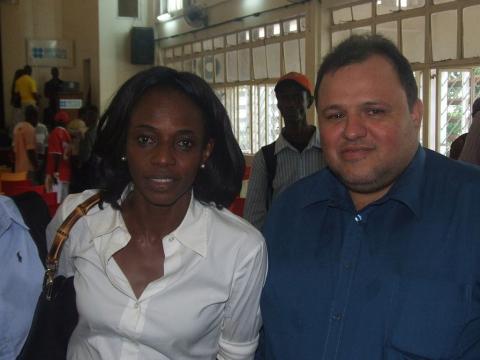By Alhaji Komba
Football administrators and fans have identified “greed, incompetence, indiscipline and over-centralization” as the main problems affecting the growth and development of football in Sierra Leone. About one hundred of them took part in the BBC Media Action radio programme Tok bot Salone at the British Council Hall yesterday on the topic, “Will football live or die in Sierra Leone?”
Sports Minister Paul Kamara said, “even though FIFA is against political interference in football, it is the government that owns and funds its national team. “And as chairman of the National Sport Council, I have the right to settle issues where there is dispute.” Kamara also said that there should be collaboration between the government and the Football Association. In her contribution to the debate presidential aspirant for the SLFA presidency, Isha Johansen accused sport administrators of “a lack of patriotism, discipline and integrity.” She said this had left the Sierra Leone Football Association “in a total mess”. Another presidential aspirant, Rodney Michael quoted the General Secretary of Central and East Africa FA, Nicholas Musonye as saying that “too many national associations are failing African football. We cannot have strong national teams without strong leagues. Too often the associations are run by the wrong people, people who get involved for politics and money, not for football. Until we sort ourselves out, we will have the same old circus.” Michael argued that this described the situation currently facing Sierra Leone football. Acting General Secretary of the SLFA, Abdul Rahman Swarray admitted that football administration at club, district, regional and national levels was inept in the country. ”The running of football is beset with selfish interests and lack of sincerity” he said. The programme also heard contributions from a national football hero Brima Mazola Kamara and long-time football administrator, Alhaji Unisa Alim Sesay aka Awoko. According to Senior Programme officer at BBC Media Action, Hassan Arouni, the programme was part of a series aimed at encouraging people’s participation in national development.








